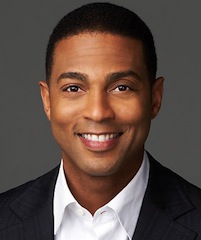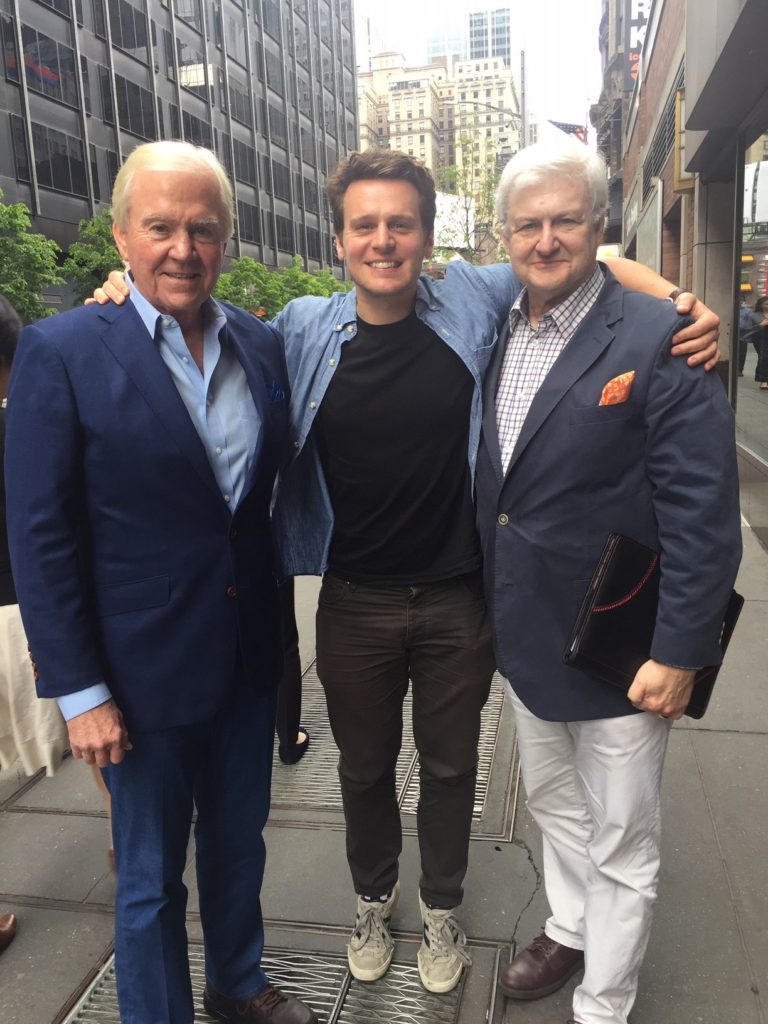To my way of thinking, no one on television of late has displayed as much courage, insight and class as CNN news anchor Don Lemon. Lemon was the first of his profession to come out publicly and state that he is gay, paving the way for others such as Anderson Cooper. But that act of courage is not what I’m talking about here.
It is his straight talk about a subject that should concern all of us: crime in the African American community.
Since the trial of George Zimmerman for killing Trayvon Martin in Florida and its controversial verdict, one of the more prevalent subtexts has to do with the fact that young black men are convicted of violent crime and incarcerated far in excess of their proportion of the population. To some, the subtext is that this segment is inherently criminal and law-abiding citizens are right to be wary of them. To others, the subtext is that this is symptomatic of the institutional racism that has plagued our nation and that young black men cannot get an even break.
Lemmon cited conservative black radio host and commentator David Webb’s question about why people weren’t talking about “the epidemic of crime in the black community.”
Well, turns out they were, and Lemon ran clips from, of all people, right-wing Fox host Bill O’Reilly. In the first he says:
“The reason there is so much violence and chaos in the black precincts is the disintegration of the African American family.”
To which Lemon responded, “He’s got a point,” then proceeded to air the second clip:
“Raised without much structure, young black men often reject education and gravitate towards the street culture, drugs, hustling, gangs. Nobody forces them to do that. It is a personal decision.”
“He is right about that, too,” said Lemon. “But in my estimation, he doesn’t go far enough.” He then went on to list “five things some in the black community could use to fix our own problems.”:
1. Dress appropriately. “Pull up your pants. If your pants are sagging, your self-esteem is sagging.”
2. Stop using the N word. He quoted Jay Z as saying that they had taken the power out of the word and Chris Rock claiming they have made it into poetry. Instead of “deluding themselves that they’re taking the word back,” Lemon suggested, they should realize they are “perpetuating the stereotype the ‘massa’ intended.”
3. Respect where you live and take care of your community.
4. Finish school and speak proper English. The earnings differential between a college graduate and a high school dropout is staggering. He declared that the idea that “discipline, commitment, education mean ‘acting white,’ is just ludicrous. Then what is ‘acting black’?”
5. Plan for children or stop having them out of wedlock. He said that more than 72 percent of children in the African American community are born out of wedlock. “And that means absent fathers. And the studies show that the lack of a male role model is an express train right to prison. And the cycle continues.”
Lemon noted that these suggestions are not about an end to racism, because that ball is not in the African American court, but about self-empowerment, which is. He used clips from Martin Luther King, Jr., Malcolm X, Barack Obama and Bill Cosby to support the need for personal responsibility and self-knowledge.
There was a sizable outpouring of response to Lemon’s editorial commentary – both positive and negative. An African American, gay college graduate, Iraq war veteran and writer named Rob Smith penned a heartfelt response on Huffington Post, stating that he already followed all of Lemon’s suggestions, but that didn’t protect him from job discrimination, stop and frisk or worse by trigger-happy cops, or white people from crossing the street as they saw him approach.
“I’ll keep living by the ‘rules’ not because Mr. Lemon says so, but because that is how I was raised,” Mr. Smith commented.
I think that is exactly what Lemon was talking about, and all he was doing was urging more people to do so. “If this doesn’t apply to you, I’m not talking to you,” he made clear after enumerating his suggestions. No, Smith’s problems haven’t gone away. But Lemon’s message is that if a lot more people used men like Rob Smith as role models, much of the African American community’s problems with respect to crime would be solved and the community as a whole would be on the way to self-empowerment.
The insightful and articulate Mr. Smith was not the only strong response to Don Lemon. Media and fashion mogul and activist Russell Simmons wrote an open letter to Lemon, which he chose to respond to on the air.
Tomorrow, a discussion of Simmons’ letter and Lemon’s response.




























Great topic and great timing. I was so disgusted with the CNN panels during the Zimmerman case, both sides, really, but I remember occasionally there was one guy who seemed sensible and truthful instead of biased and propagating rhetoric, and now that you’ve posted his photo, I believe it was him.
I can’t claim to be up on the early speeches of the historic black leaders, but I do remember Bill Cosby speaking strongly to the community back in either the late seventies or early eighties about getting their act together — and he was roundly castigated for it. It didn’t silence him, however, and people would do well to listen to what he has to say.
The topic of the chicken or the egg in why there are more blacks in prison is one of the touchiest there is. Many blacks think it’s obvious that they are simply picked on and arrested for racial reasons and that that is it in a nutshell. Many nonblacks can clearly see socioeconomic reasons why crime is higher in that community, with a healthy measure of retribution thrown in. We may attribute some of the reasons behind it to the sad history, but most people live more in the present than to excuse it with that alone, and I think that is where the twain will never meet. Many blacks view the majority of nonblacks as biased against them while the nonblacks don’t think about it nearly enough for that to be true and view it only as an embarrassing vocal minority of nonblacks who cause all the problems.
There are arguments of convenience on both sides, I suppose. But what must be said is that race and racial history should never be used as an excuse, that we should look to the future, and that we must always try to be lucid that racism goes both ways.
Looking forward to further on this topic. Thanks!